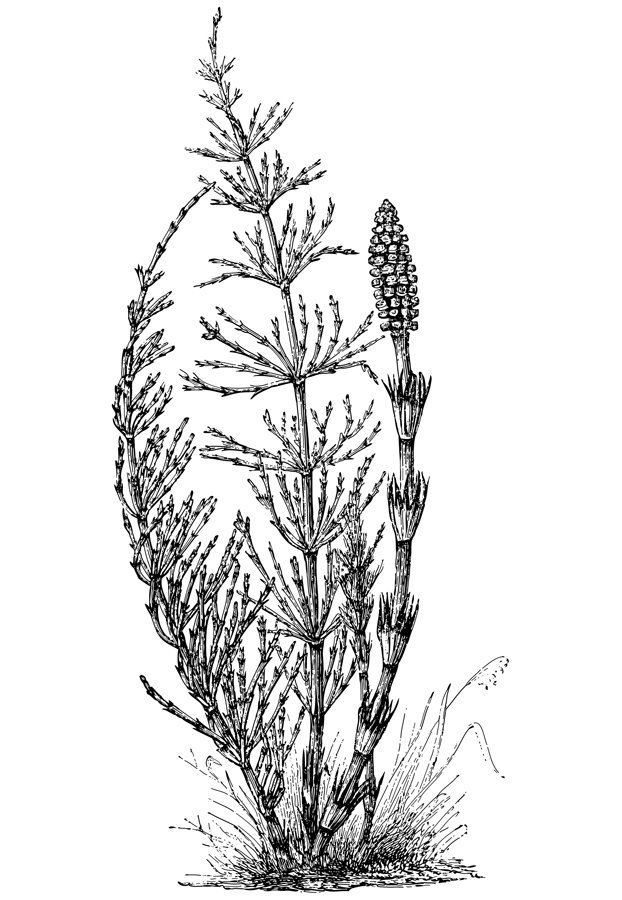
In these times of polarization, when it comes to weeds, Key Peninsula gardeners exhibit a refreshingly cheerful agree-to-disagree attitude.
Weeds are the bane of many a gardener’s existence. But query members of the Key Pen Gardeners Facebook Group about their “favorite” weeds and the first responses extoll their benefits: The joyfulness of their typically yellow blossoms, their nutritional or medicinal value for humans and other living beings.
Dandelions have the biggest fanbase. Many cited their edible qualities (See KP Cooks in this edition).
Marcie Hershman taught her boys when they were little that dandelions were droplets of sunshine that rained down from the sky reminding us to smile, even in the rain. “I have so many pictures of their sweet faces handing me those golden, little flowers saying, ‘Smiles,’ ” she said.
Sharron Gratton noted dandelions are one of the first foods available for bees.
Rachel Easton, the education director at Harbor WildWatch, uses dandelions as a teaching tool. She tells her students that the etymological root is dent-de-lion or lion’s tooth and also has them examine the different kinds of flowers to demonstrate that not all yellow flowers are dandelions.
Other weeds inspired praise: chickweed, plantain, lambs quarters and mullein, for their edible or medicinal value.
“My husband has been chastised for mowing my plantain,” Susan Arends said.
Tasty berries give the ever-maligned blackberry at least one redeeming quality. Horsetails, as Brook Hurst Stephens wrote, are “Edible and as natural scrub brushes to clean out livestock troughs. My geese go wild for them, too.” But eradicating them once they invade a garden is a Herculean task. Scotch broom and English ivy have few fans, if any.
Jerry McCourt said that if he were to choose a weed to invade his vegetable garden, he’d select the buttercup. “They grow so well they crowd out everything else,” he said. “Then you can dig them up, and the ‘pop’ of the roots coming out is really satisfying.”
But inquire a little further and even those who praise the finer qualities of weeds will admit that they have their limits.
“Plan your garden. Any plant in the wrong place is a weed. You can either dig it up or gently transplant it,” Gratton said, offering the words of advice from a master gardener friend. “I just go in the woods if I need a weed. A lot of this stuff is called ‘weeds’ because it will take over your garden,” Scott Hawthorn wrote.
Pierce County Master Gardener Dale Skrivanich had some basic advice. Prevention and suppression are the most important methods to control weeds.
“Weeds were put on this earth to cover bare soil,” she said. Novice gardeners might be tempted to till the garden, making for a beautiful vista of fresh turned soil. “If you till,” she said, “you just expose weed seeds, they sprout, and away you go.” Her family grows wheat in eastern Washington. “We don’t till anymore when we plant,” she said. “We drill.”
Skrivanich attests to the power of mulching to prevent weeds from sprouting. Mulch can be compost, woodchips, or even grass cuttings or leaves, although she warns that home compost rarely gets hot enough to kill most weed seeds. Many of the Key Pen Gardeners cover their vegetable beds with cardboard for the winter. Mulch should be about 2 inches deep to assure that sunlight can’t get through.
Once weeds do grow, as they inevitably will, the best approach is constant vigilance. A daily routine, pulling weeds well before they can go to seed when the soil is moist and the roots come out easily should keep things under control.
Skrivanich said horsetails present a particular challenge: Trying to dig or pull them up simply activates the roots and makes them multiply.
“They love poor, moist, acidic soil,” she said. To get rid of them improve the drainage and sweeten the soil with dolomite lime, following directions on the package. It may take a few years to kill them off. And beware the fruiting bodies seen in the early spring — they have shorter stems and produce countless spores, yet another way for the plant to multiply. If you see them, cut them at the base and bag them and put them in the garbage, safely away from a compost pile.
UNDERWRITTEN BY THE FUND FOR NONPROFIT NEWS (NEWSMATCH) AT THE MIAMI FOUNDATION, THE ANGEL GUILD, ADVERTISERS, DONORS AND PEOPLE WHO SUPPORT INDEPENDENT, NONPROFIT LOCAL NEWS